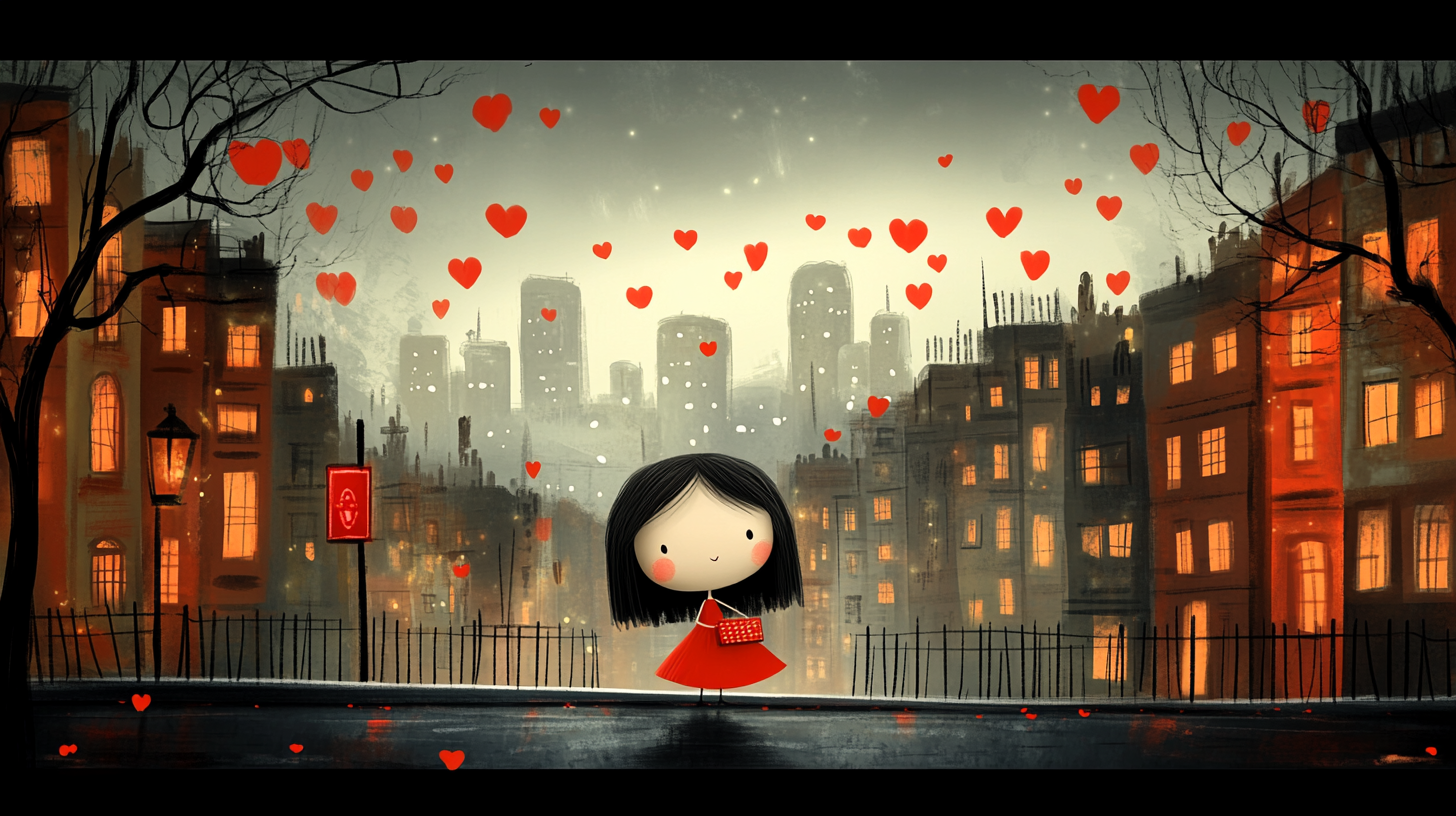Urban means something related to a city or town.
以下は英単語 “urban” に関するストーリー型学習コンテンツです。まずは大枠の意味を理解して最後の文章で確認しましょう。
主な意味(main meaning)
| 品詞 | 意味 | 発音記号 | 英語例文 |
|---|---|---|---|
| 形容詞 | 都市の、都会の | /ˈɜː.bən/ | She prefers urban life to rural life. |
語源(etymology)
出どころ:ラテン語 urbanus(=都市に属する)
この語は「urbs(都市)」というラテン語から派生しています。
核のイメージは「都市に関係する」。
類義語(synonyms)
| 類義語 | 英語例文 |
|---|---|
| metropolitan | Tokyo is a large metropolitan area. |
| civic | Civic buildings are well maintained in this area. |
| municipal | The municipal government built a new library. |
| city | City life is often busy and noisy. |
「urban」と「city」はどちらも「都市」に関係しますが、意味や使い方にははっきりとした違いがあります。
| 単語 | 品詞 | 意味 | 用法の特徴 |
|---|---|---|---|
| city | 名詞 | 「都市」「市」具体的な場所や行政単位 | 例:Tokyo is a big city. |
| urban | 形容詞 | 「都市の」「都会に関係する」性質・特徴を表す | 例:Urban areas have more public transport. |
city は「場所・名前」→ 例:「東京という**都市(city)**に住んでいます」
urban は「性質・形容詞」→ 例:「都会的(urban) なライフスタイルを送っています」
反義語(antonyms)
| 反義語 | 英語例文 |
|---|---|
| rural | He grew up in a rural village surrounded by farms. |
| suburban | They moved to a quiet suburban neighborhood. |
コロケーション(collocations)
| コロケーション | 英語例文 |
|---|---|
| urban area | Many people live in urban areas around the world. |
| urban development | Urban development changed the landscape of the town. |
| urban life | Urban life offers more job opportunities. |
| urban planning | Urban planning helps cities grow efficiently. |
| urban population | The urban population is increasing every year. |
2項表現(binomials)
| 2項表現 | 英語例文 |
|---|---|
| urban and rural | The government must address both urban and rural needs. |
| city and urban | City and urban planning require a lot of research. |
英語ストーリー(english story)
Title: Urban Change
Yuki had always lived in a small rural village with her grandparents. The air was clean, the streets were quiet, and everyone knew each other. However, when she got a job in Tokyo, she had to move to an urban area for the first time in her life.
Urban life was exciting but also challenging. The urban population was large, and public transportation was always crowded. She missed the calm of her rural home. But she also found many good things in the city. There were many restaurants, shops, and events. As she explored, she learned about urban development and how cities change over time.
Yuki became interested in urban planning. She realized that good city planning could make urban life more comfortable. She joined a civic group that worked with the municipal government to improve the neighborhood. They discussed ideas like more parks and better public services.
One day, she heard a talk about the difference between urban and rural lifestyles. It reminded her of her hometown. “Urban and rural areas both have value,” the speaker said. Yuki nodded. She understood that now more than ever.
She still missed her village sometimes, but she had become a true part of metropolitan life. Her dream was to help make cities better places to live, for both current and future generations.
和訳
タイトル:都市の変化
ユキはいつも祖父母と一緒に小さな田舎の村で暮らしていました。空気はきれいで、通りは静かで、誰もが知り合いでした。しかし、東京で仕事を得たとき、彼女は初めて都会に引っ越すことになりました。
都会の生活は刺激的でしたが、大変でもありました。都市の人口は多く、交通機関はいつも混んでいました。彼女は田舎の穏やかさが恋しくなりました。でも、都会にも良い点がたくさんありました。レストランやお店、イベントが豊富でした。探索していくうちに、彼女は都市開発に興味を持つようになりました。
ユキは都市計画に関心を持ちました。良い都市計画が、暮らしを快適にすると気づいたのです。彼女は自治体と協力して地域を良くする市民グループに参加しました。公園を増やすことや公共サービスの改善などのアイデアについて話し合いました。
ある日、彼女は都会と田舎の生活の違いについての講演を聞きました。それは彼女の故郷を思い出させました。「都会も田舎も、それぞれ価値がある」と講演者は言いました。ユキはうなずきました。彼女は今、そのことをよく理解していました。
ときどき村が恋しくなるものの、彼女は完全に都会生活の一部となっていました。彼女の夢は、今もこれからも人々が住みやすい都市を作る手助けをすることです。



コメント